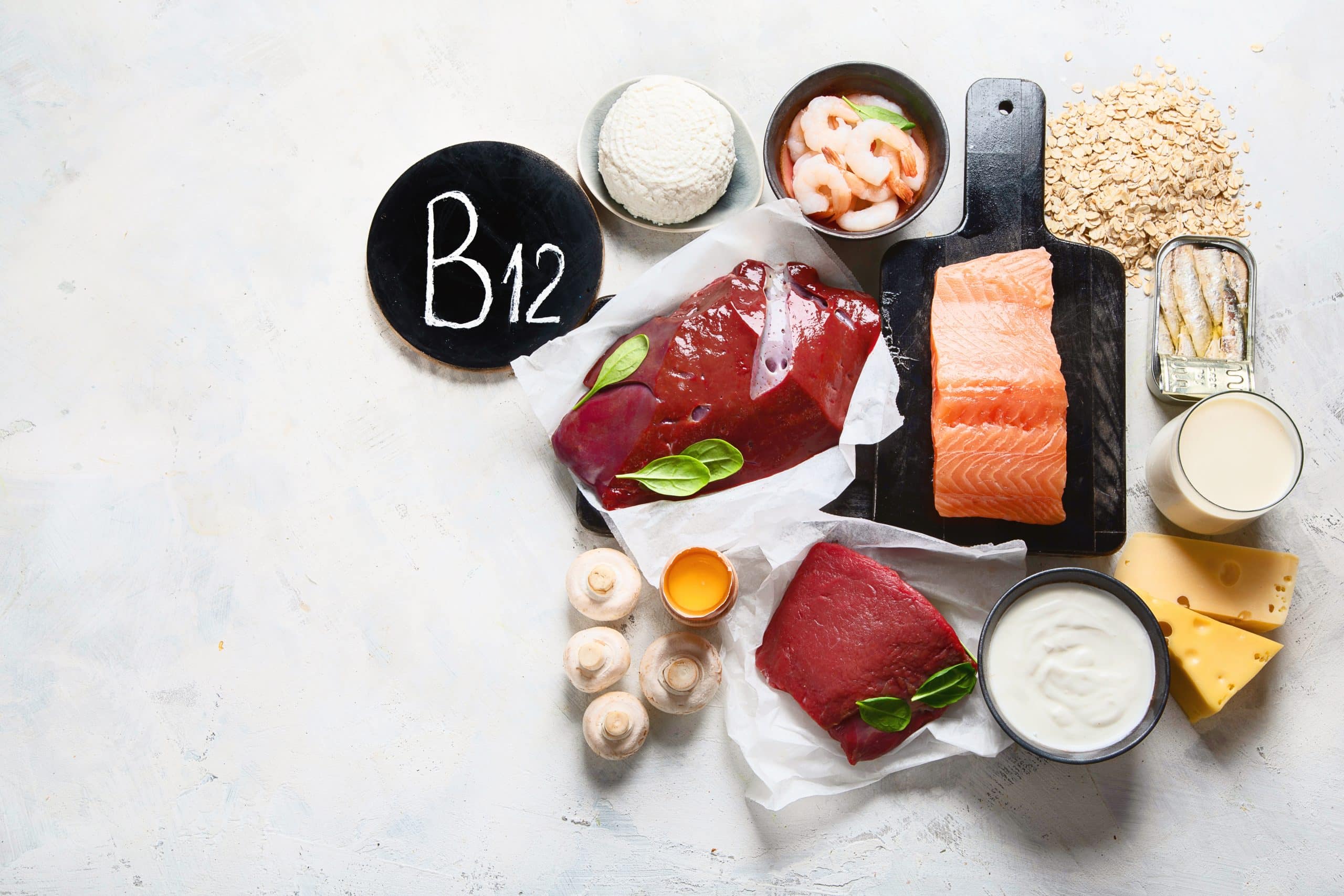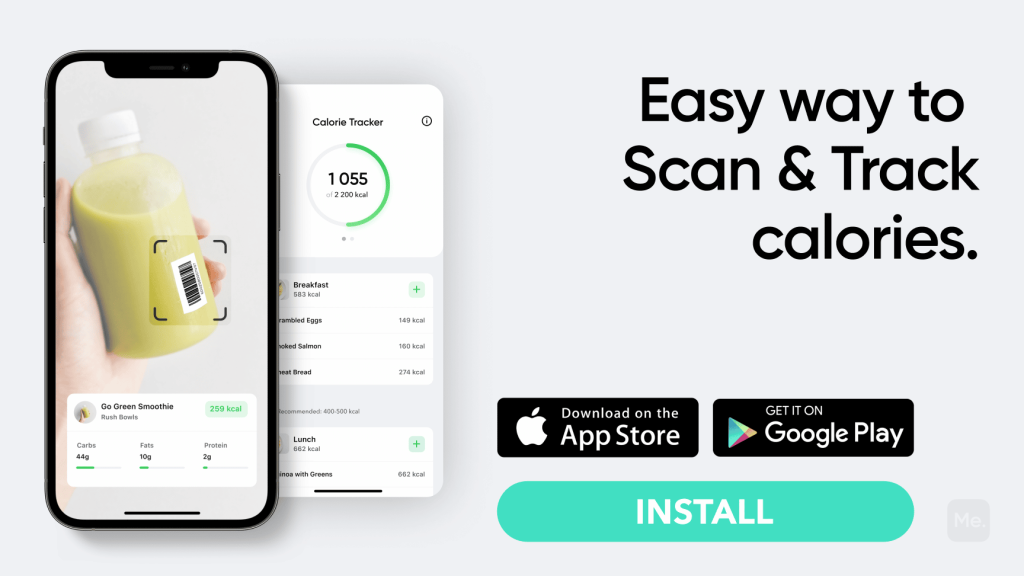In a world where time is of the essence, maximizing energy and productivity is crucial to staying ahead of the game. Amidst the endless search for ways to boost our vitality, Vitamin B12 has emerged as a popular contender. Touted as a natural energy enhancer, this powerful nutrient has garnered a dedicated following. But does Vitamin B12 live up to the hype, or is it just another placebo effect? In this blog post, we’ll dissect the science behind Vitamin B12’s connection to energy levels, debunking misconceptions and shedding light on facts. Read on to discover whether this potent nutrient could be your missing link to unlocking unparalleled energy and productivity.
What Is Vitamin B12?
Vitamin B12, also known as cobalamin, is a water-soluble vitamin that plays a crucial role in various bodily functions. It’s an essential nutrient, which means our bodies cannot produce it on their own, and we must obtain it from our diet or supplements (9).
One of the primary roles of Vitamin B12 is to support the production of red blood cells, which transport oxygen throughout our body. Without sufficient oxygen, our cells struggle to produce energy, leading to fatigue and weakness.
B12 also plays a vital part in maintaining the health of our nervous system, ensuring proper nerve function and communication between cells (9).
In addition to these critical functions, Vitamin B12 is involved in DNA synthesis, fatty acid metabolism, and the conversion of homocysteine to methionine – an amino acid that helps build proteins (8). This complex nutrient is indispensable for our overall well-being.
Does Taking Vitamin B12 Help With Energy?
Taking Vitamin B12 can indeed help with energy levels, but the effect is more noticeable in individuals who have a deficiency or are at risk of one.
The science behind this is rooted in B12’s vital role in red blood cell production and oxygen transportation throughout the body, both of which are essential for generating energy.
Vitamin B12 works alongside folic acid to produce healthy red blood cells, which carry oxygen to our cells (6). In turn, cells use oxygen to generate adenosine triphosphate (ATP), the primary source of energy for our body’s various processes (5).
A deficiency in B12 can lead to anemia, causing inadequate oxygen supply to cells, and consequently, fatigue and weakness (10).
Furthermore, Vitamin B12 plays a role in converting the food we eat into glucose, which is then used by our body as a source of energy. Without sufficient B12, this conversion process may become less efficient, leading to decreased energy levels.
However, it’s essential to understand that while taking Vitamin B12 can help improve energy in those who are deficient or have difficulty absorbing the nutrient, it may not have the same effect on individuals with adequate levels.
In other words, consuming more B12 than your body requires will not necessarily translate into increased energy or enhanced performance. The body can only utilize a certain amount of B12, and any excess is typically excreted through urine (12).
Scientific studies have shown that correcting a B12 deficiency can lead to improved energy levels and reduced fatigue (13). Still, there is limited evidence to suggest that supplementation in individuals with normal B12 levels offers any additional benefits in terms of energy.
Read More: Discover The Best Vitamin B12 Vegetables For A Healthy Plant-Based Diet
How To Tell If You Have A Vitamin B12 Deficiency?
Vitamin B12 deficiency can manifest in various ways, and identifying it early is crucial for addressing potential health complications. To determine if you have a B12 deficiency, it’s essential to be aware of the common symptoms, risk factors, and diagnostic tests available.
Here’s a breakdown of these aspects to help you identify a possible deficiency:
Symptoms
Symptoms of vitamin B12 deficiency may include (11):
- Fatigue and weakness: As B12 is vital for red blood cell production and energy generation, a deficiency can result in reduced oxygen supply to cells, causing tiredness and lethargy.
- Anemia: A specific type of anemia called megaloblastic anemia can occur due to B12 deficiency, characterized by larger-than-normal red blood cells that cannot function efficiently.
- Numbness or tingling: B12 is crucial for maintaining nerve health. A deficiency can lead to nerve damage, resulting in sensations like pins and needles in hands, feet, and other extremities.
- Cognitive difficulties: Memory problems, confusion, and difficulty concentrating may arise from B12 deficiency, impacting overall mental function.
- Balance issues: In severe cases, a deficiency can affect coordination and balance, making it difficult to walk or perform daily tasks.
Risk Factors
Certain groups are at a higher risk of developing a B12 deficiency, including (10):
- Vegans and vegetarians: As B12 is predominantly found in animal products, those following plant-based diets may struggle to get enough of the nutrient.
- Older adults: Aging can reduce the stomach’s ability to produce hydrochloric acid, which is necessary for B12 absorption.
- Individuals with gastrointestinal disorders: Conditions such as Crohn’s disease or celiac disease can impede B12 absorption in the digestive tract.
- Pernicious anemia patients: This autoimmune condition affects the production of intrinsic factor, a protein necessary for the absorption of Vitamin B12, leading to deficiency.
- Individuals taking certain medications: Some medications, such as proton pump inhibitors (PPIs) used for acid reflux, H2 blockers, or metformin for type 2 diabetes, can interfere with B12 absorption.
- Pregnant and breastfeeding women: The increased nutrient demands during pregnancy and breastfeeding may lead to depleted B12 levels, particularly in vegan and vegetarian women.
- Alcoholics: Excessive alcohol consumption can impair the absorption of nutrients, including Vitamin B12, and contribute to deficiency.
BetterMe app is a foolproof way to go from zero to a weight loss hero in a safe and sustainable way! What are you waiting for? Start transforming your body now!
Diagnostic Tests
If you suspect a B12 deficiency based on symptoms or risk factors, it’s essential to consult a healthcare professional.
They may conduct the following tests to confirm a deficiency:
- Blood tests: A complete blood count (CBC) can help identify anemia while measuring serum B12 levels can detect a deficiency directly.
- Methylmalonic acid (MMA) test: Elevated MMA levels in the blood can indicate a B12 deficiency, as the nutrient is required to break down MMA.
Note that these diagnostic tests for Vitamin B12 deficiency may not always be reliable in correctly identifying the condition, as false positives and negatives can occur. It’s essential to speak with a doctor regarding the results and take their advice when it comes to treatment plans.
Where Is Vitamin B12 Found?
Vitamin B12 is predominantly found in animal-based foods, with some of the richest sources being organ meats, seafood, dairy products, and fortified foods.
Below is a comprehensive list of Vitamin B12 sources to help you ensure adequate intake:
Meat And Poultry
- Liver (beef, lamb, chicken): The liver is one of the most concentrated sources of Vitamin B12, with beef liver boasting the highest content.
- Kidney (beef, lamb, pork): The kidney is another organ meat rich in B12.
- Beef: Various cuts of beef, such as steak and ground beef, can also provide significant amounts of B12.
- Chicken: While not as high in B12 as red meat or organ meats, chicken can still contain a moderate amount of the said vitamin.
Seafood
- Shellfish (clams, mussels, oysters): Shellfish are among the richest sources of Vitamin B12, with clams being particularly high in nutrients.
- Fish (sardines, salmon, trout, tuna, haddock, cod): Fatty fish like sardines and salmon are excellent sources of B12, but other varieties like haddock and cod also contain significant amounts.
- Crab and lobster: These crustaceans are also good sources of Vitamin B12.
Dairy Products
- Milk: Cow’s milk and goat’s milk both contain Vitamin B12.
- Yogurt: Various types of yogurt, including Greek yogurt and regular yogurt, are good sources of B12.
- Cheese: Cheeses like Swiss, mozzarella, feta, and cottage cheese all contain varying amounts of Vitamin B12.
Read More: From Thin To Thick: How To Use Vitamin D For Hair Growth
Eggs
Eggs, particularly the yolk, are a good source of Vitamin B12.
Fortified Foods
- Fortified plant-based milk (soy, almond, rice): Vitamin B12 is often added to plant-based milk alternatives for those who do not consume dairy.
- Nutritional yeast: This deactivated yeast is a popular vegan source of B12, often used as a cheese substitute for its savory flavor.
- Fortified cereals: Some breakfast cereals are fortified with Vitamin B12, making them a convenient option for those seeking additional sources.
- Fortified meat substitutes: Many plant-based meat alternatives, such as veggie burgers and sausages, are fortified with Vitamin B12 to help meet nutritional needs.
Supplements
- B12 supplements: Vegan-friendly B12 supplements, typically in the form of cyanocobalamin or methylcobalamin, can be taken to ensure adequate intake, especially for those who may struggle to get enough from fortified foods alone.
- Multivitamins: Some vegan-friendly multivitamins contain Vitamin B12, providing a convenient way to supplement multiple nutrients at once.
What Are Other Ways To Increase Your Energy Levels?
Aside from maintaining normal B12 levels, there are several other ways to boost energy levels through lifestyle adjustments and general health practices.
Incorporating these strategies into your daily routine can support your body’s natural energy production and enhance overall health and well-being.
Balanced Diet
Ensure you consume various nutrient-dense foods, including fruits, vegetables, whole grains, lean proteins, and healthy fats. This will provide your body with the essential nutrients and fuel it needs to function optimally.
Stay Hydrated
Dehydration can lead to fatigue and decreased cognitive function (3). Aim to drink enough water throughout the day to maintain proper hydration.
Intense sweat sessions, working weight loss tips, lip-smacking recipes come in one package with the BetterMe app. And all of it is at your fingertips, start transforming your life now!
Regular Exercise
Engaging in regular physical activity can help improve energy levels, cardiovascular health, and overall well-being (4) (7).
Aim for at least 150 minutes of moderate-intensity aerobic exercise or 75 minutes of vigorous-intensity aerobic exercise per week, combined with strength training activities.
Prioritize Sleep
Aim for 7-9 hours of quality sleep per night to allow your body to recover and replenish energy stores.
Manage Stress
Practice stress-reduction techniques, such as meditation, yoga, or deep breathing exercises, to help promote relaxation and prevent energy depletion caused by chronic stress (1).
Limit Caffeine And Alcohol
Excessive consumption of caffeine or alcohol can negatively impact sleep quality and energy levels (2). Consume these substances in moderation.
Eat Smaller, Frequent Meals
Consuming smaller meals throughout the day can help stabilize blood sugar levels and maintain consistent energy.
The Bottom Line
In conclusion, taking Vitamin B12 can be beneficial for energy levels, primarily if you have a deficiency or absorption issues. However, for those with sufficient B12 intake, increasing consumption may not yield significant energy improvements. Remember, more isn’t always better.
To maintain optimal energy levels, it’s crucial to ensure an adequate intake of various essential nutrients, including Vitamin B12, and follow a balanced diet and healthy lifestyle.
DISCLAIMER:
This article is intended for general informational purposes only and does not serve to address individual circumstances. It is not a substitute for professional advice or help and should not be relied on for making any kind of decision-making. Any action taken as a direct or indirect result of the information in this article is entirely at your own risk and is your sole responsibility.
BetterMe, its content staff, and its medical advisors accept no responsibility for inaccuracies, errors, misstatements, inconsistencies, or omissions and specifically disclaim any liability, loss or risk, personal, professional or otherwise, which may be incurred as a consequence, directly or indirectly, of the use and/or application of any content.
You should always seek the advice of your physician or other qualified health provider with any questions you may have regarding a medical condition or your specific situation. Never disregard professional medical advice or delay seeking it because of BetterMe content. If you suspect or think you may have a medical emergency, call your doctor.
SOURCES:
- Effectiveness of Progressive Muscle Relaxation, Deep Breathing, and Guided Imagery in Promoting Psychological and Physiological States of Relaxation (2021, hindawi.com)
- Effects of caffeine on sleep quality and daytime functioning (2018, ncbi.nlm.nih.gov)
- Effects of Dehydration and Rehydration on Cognitive Performance and Mood among Male College Students in Cangzhou, China: A Self-Controlled Trial (2019, mdpi.com)
- Health benefits of physical activity: the evidence (2006, ncbi.nlm.nih.gov)
- Histology, Red Blood Cell (2022, ncbi.nlm.nih.gov)
- New insights into erythropoiesis: the roles of folate, vitamin B12, and iron (2004, pubmed.ncbi.nlm.nih.gov)
- The Effect of Chronic Exercise on Energy and Fatigue States: A Systematic Review and Meta-Analysis of Randomized Trials (2022, frontiersin.org)
- Vitamin B-12 (n.d., ncbi.nlm.nih.gov)
- Vitamin B12 – Health Professional Fact Sheet (2022, ods.od.nih.gov)
- Vitamin B12 Deficiency (2022, ncbi.nlm.nih.gov)
- Vitamin B12 deficiency – A 21st century perspective (2015, ncbi.nlm.nih.gov)
- Vitamin B12 in Health and Disease (2010, mdpi.com)
- Vitamins and Minerals for Energy, Fatigue and Cognition: A Narrative Review of the Biochemical and Clinical Evidence (2020, mdpi.com)










